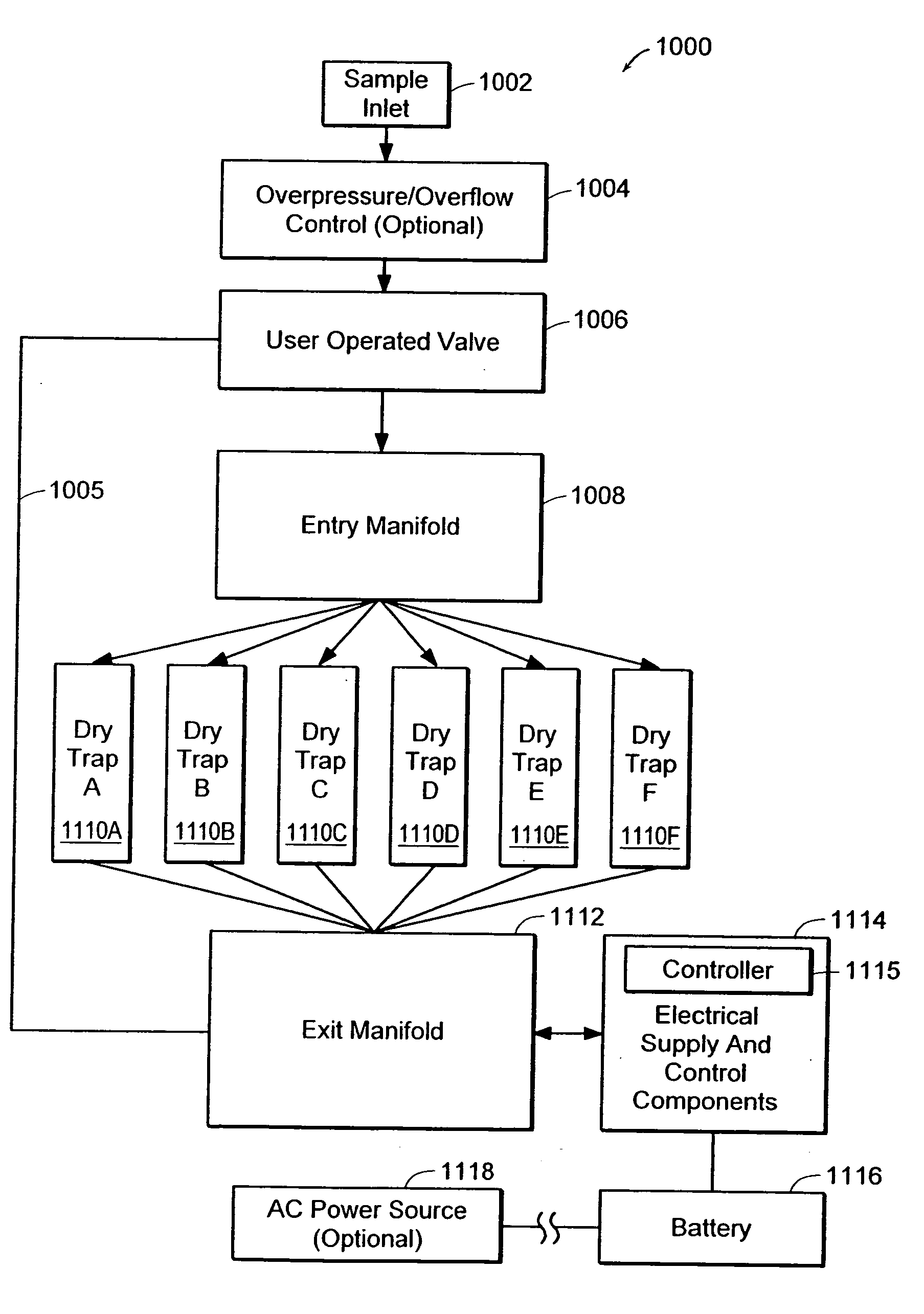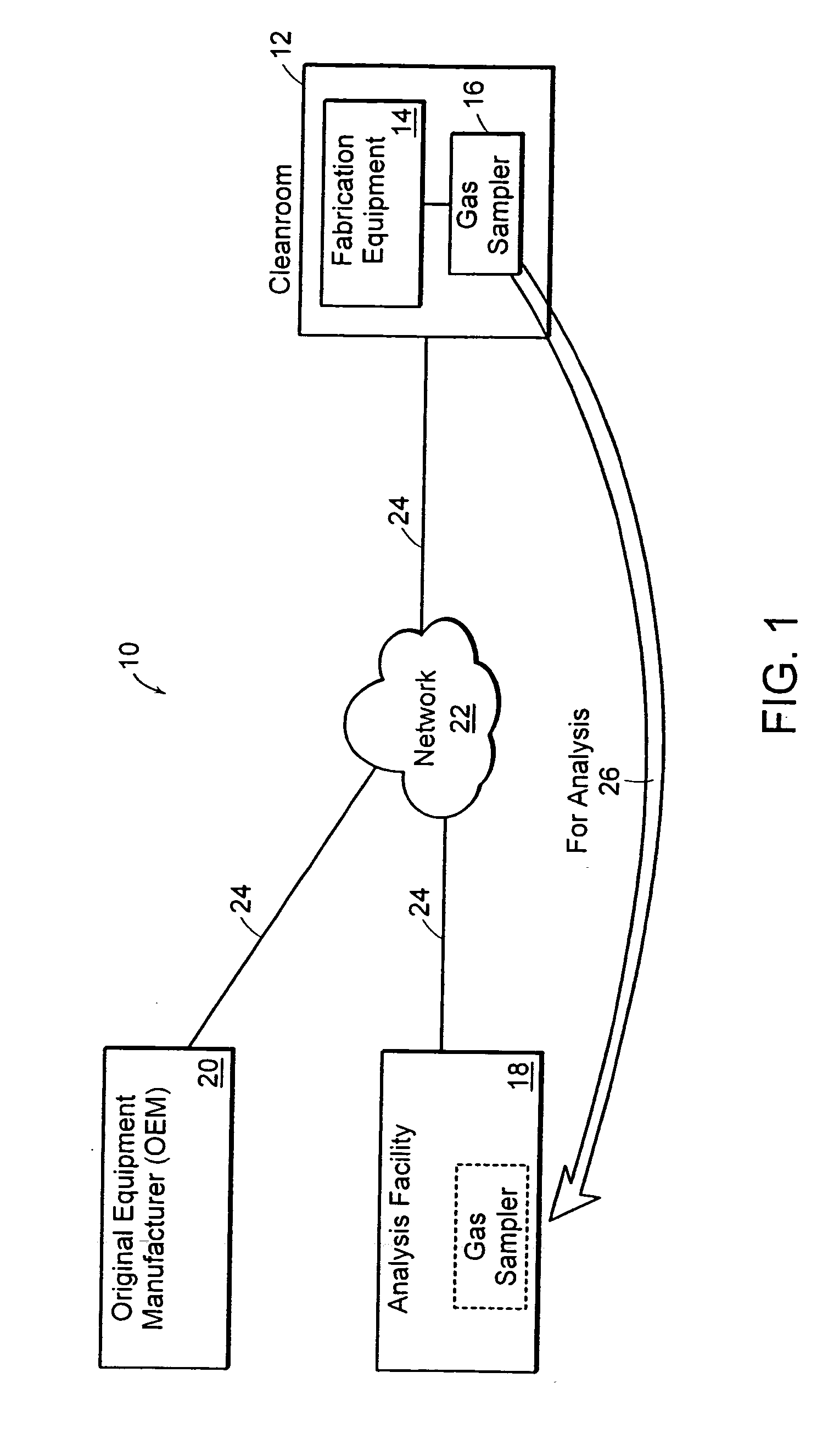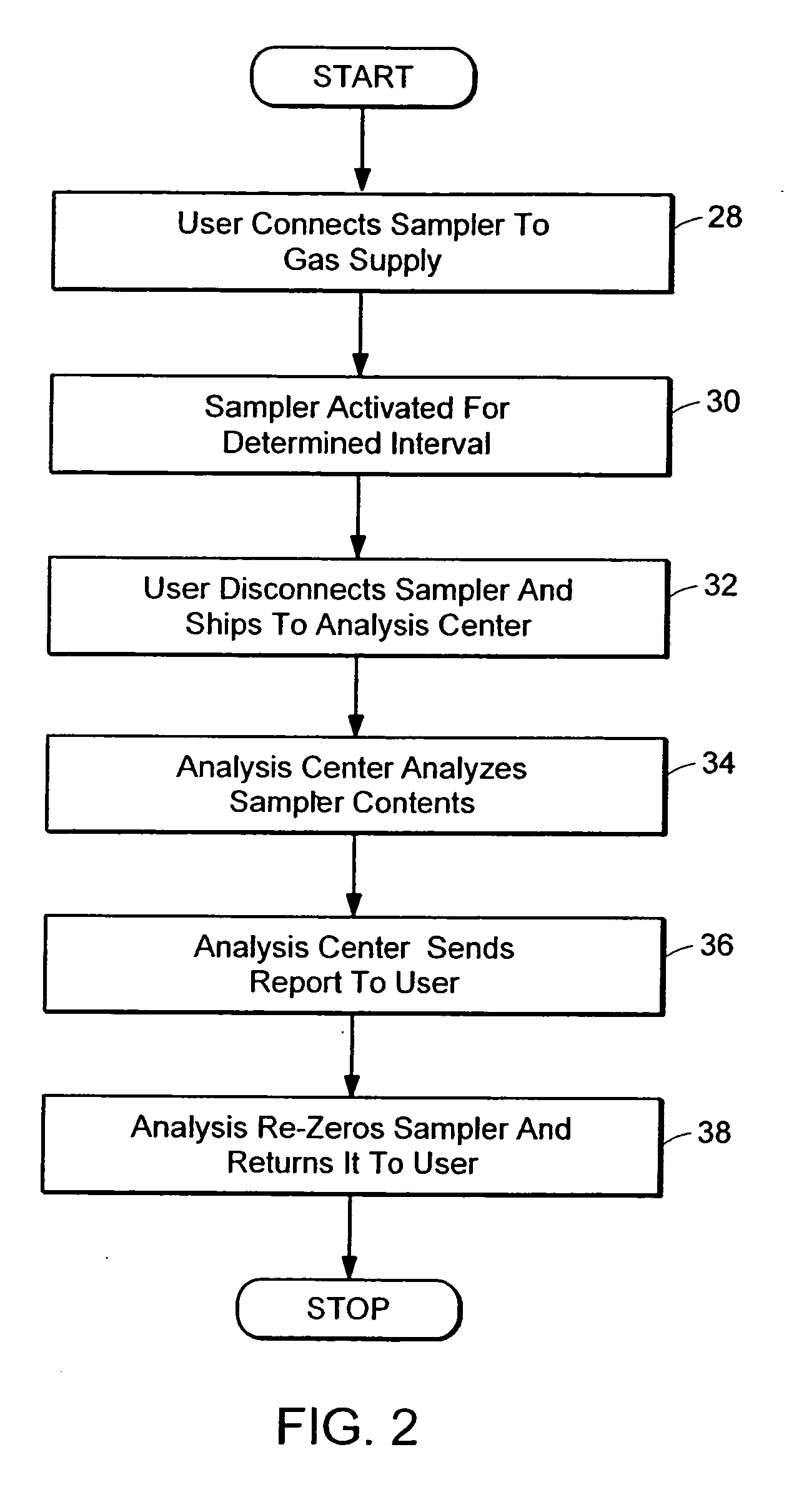Systems and methods for detecting contaminants
a technology of systems and methods, applied in the field of systems and methods for detecting contaminants, can solve the problems of imposing limits on the detection limit of the approach, affecting the detection effect, so as to facilitate the reduction or elimination of drawbacks
- Summary
- Abstract
- Description
- Claims
- Application Information
AI Technical Summary
Benefits of technology
Problems solved by technology
Method used
Image
Examples
Embodiment Construction
[0044]FIG. 1 contains a schematic representation of a system for measuring and analyzing contaminants using a preferred embodiment of the invention. System 10 includes a cleanroom 12 having semiconductor fabrication equipment 14 operating therein, a gas sampling unit 16, a gas sampler analysis facility 18, an original equipment manufacturer (OEM), a communications network 22, and communications links 24. Cleanroom 12 is used in the manufacture of semiconductor devices such as silicon wafers. Within cleanroom 12, one or more pieces of fabrication equipment 14 are operating. Examples of fabrication equipment 14 are, but are not limited to, photolithography machines and chemical vapor deposition systems. Gas sampling unit 16 is placed in cleanroom 12 to sample contaminants present therein. Gas sampling unit 16 may be coupled to one or more pieces of fabrication equipment 14 using, for example, Teflon tubing, or gas sampling unit 16 may be located such that it draws ambient cleanroom ai...
PUM
| Property | Measurement | Unit |
|---|---|---|
| volume | aaaaa | aaaaa |
| diameter | aaaaa | aaaaa |
| height | aaaaa | aaaaa |
Abstract
Description
Claims
Application Information
 Login to View More
Login to View More - R&D
- Intellectual Property
- Life Sciences
- Materials
- Tech Scout
- Unparalleled Data Quality
- Higher Quality Content
- 60% Fewer Hallucinations
Browse by: Latest US Patents, China's latest patents, Technical Efficacy Thesaurus, Application Domain, Technology Topic, Popular Technical Reports.
© 2025 PatSnap. All rights reserved.Legal|Privacy policy|Modern Slavery Act Transparency Statement|Sitemap|About US| Contact US: help@patsnap.com



